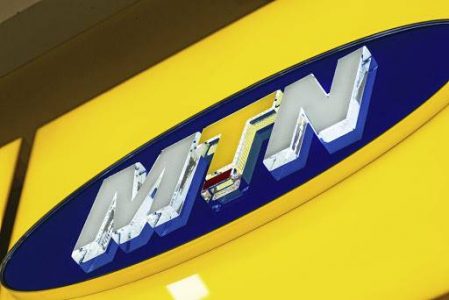
Victims of terror: MTN paid Taliban ‘protection money’
A civil lawsuit brought in the US says MTN paid protection money to the Taliban and actively helped its fighters from being detected by US counter-insurgency forces
The company, along with five other Western businesses, have been accused in a US court of having violated the Anti-Terrorism Act by paying protection money to the Taliban, a designated terrorist organisation known to have been working with al-Qaeda.
The Taliban was overthrown by US-led forces in the wake of the 9/11 terrorist attacks, when the US accused Afghanistan’s ruling party of harbouring those responsible for the attacks. Those not killed went into hiding before launching a prolonged counter-insurgency against the coalition government.
MTN said in a Sens statement on Monday that on December 27 a lawsuit seeking damages was filed in the federal court of the District of Columbia by American service members and civilians and their families who were killed or wounded in Afghanistan between 2009 and 2017.
The complainants allege that six different companies, most of which are American domiciled, supported the Taliban by, among other things, making payments to ensure the protection of their infrastructure.
“Defendants decided that buying off the terrorists was the most efficient way to operate their businesses while managing their own security risks — even though doing so jeopardised other American lives,” states the suit, which did not specify the quantum of damages being sought.
MTN Group and its wholly-owned subsidiaries, MTN Dubai and MTN Afghanistan, are listed as defendants.
“MTN is reviewing the details of the report and is consulting its advisers but remains of the view that it conducts its business in a responsible and compliant manner in all its territories, and so intends to defend its position where necessary,” the company said in the statement.
The lawsuit seeks damages on behalf of 400 American service members and civilians, and their families, who were killed and wounded while serving in Afghanistan between 2009 and 2017.
“While these men and women worked to rebuild post-invasion Afghanistan, they were attacked by a Taliban-led terrorist insurgency that [the] defendants helped finance,” reads an extract from the opening statement of the lawsuit.
The main allegation is that the defendants — who were all large companies with “lucrative” businesses in post-9/11 Afghanistan — paid the Taliban to refrain from attacking their business interests. That money “aided and abetted terrorism by directly funding [an] al-Qaeda-backed Taliban insurgency that killed and injured thousands of Americans”.
After entering the Afghan market through acquisition in 2006, MTN became the country’s largest provider of cellular phone services.
The lawsuit claims that MTN has made protection payments to the Taliban from 2006, resulting in payments potentially amounting to hundreds of millions of dollars. This, it is claimed, became a major source of funding for the Taliban.
Protection money was often paid in two forms: by disbursing money to Taliban commanders in dangerous districts; and/or cash passed to local tribe elders to protect cell tower sites, money which would eventually end up in the hands of the Taliban.
“MTN was a particularly aggressive practitioner of protection payments. Rather than invest in expensive security for its transmission masts, MTN purchased security by buying it from the Taliban,” the papers states.
Because MTN’s competitors were not prepared to pay the protection money, and were therefore open to attacks, the Taliban preferred to use MTN’s network for its own communications, the report says. But it goes even further, saying that MTN “ventured into active co-ordination” with the Taliban by “de-activating” its cellular network at night at the instruction of the insurgents.
“Night-time cellular service was important to coalition intelligence-collection efforts: it allowed human sources to call coalition tip lines inconspicuously, and active phone signals allowed US special operators to track high-value terrorists for night-time capture-or-kill raids,” state the applicants.
This included ignoring a decree by President Hamid Karzai in 2011 that formally demanded that MTN re-activate its towers at night, implying that MTN strengthened the Taliban and undermined US counter-insurgency efforts.
The lawyers representing the families base their allegations on a wide range of evidence, including confidential witnesses, internal company documents and declassified government-intelligence reporting.
In addition to MTN, the complaint names the London-headquartered G4S Holdings International and its subsidiaries; the Florida company Centerra Group; the Maryland company DAI Global; the Tennessee firm Janus Global Operations; Kansas firm Black & Veatch Special Projects; and the Canadian company Louis Berger Group and its subsidiaries and affiliates.
Source: Business Live





